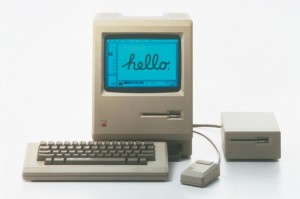I do have something to say in my defence. I was forced to do it by Elite Death Squirrels.
You can’t argue with that, can you? They come in the night, they take what they want, and nobody dares say a word. You’ve never heard of the Death Squirrels. Not even adults have heard of them. That’s how scary they are.
They’re like real squirrels, you know, but they kill. On missions from the government, usually. Their trademark is that they can get where nobody else can – and they never leave a trace. That’s really why they have to kill. It’s like compulsive tidying with them. No trace. No clue. Minimum residual presence.
That’s their term for it. MRP. Minimum Residual Presence. I tell you, these squirrels, they’re trained.
Seeing what I saw, I’m lucky to be here at all.
Look, if I were making this up, wouldn’t I have stolen a proper car? I hid in the ambulance because it was the nearest and because they wouldn’t think to search for me in there.
Yes, of course I stole the uniform. I’d be rubbish at hiding if I hadn’t put this on, wouldn’t I?
And of course I drove it away. How else do you think you escape Elite Death Squirrels? I mean, they’re fast. They really so fast. Wish I had nicked a proper car. You don’t get a lot of acceleration in ambulances. Surprises me, that. Wouldn’t you think that ambulances would have some welly? They should be on Top Gear.
Hang on, sharp bend coming up.
That should shake the last of them.
There!
Did you hear that squeal? Grownups say that’s the brakes but really it’s squirrels falling off the back. You’re not afraid, are you? It’s a well-known fact that you never see Elite Death Squirrels snatching anyone from a moving ambulance.
You’ll be okay.
I’ve done this before. Not with the squirrels, they’re new. I only found out about them recently. But the stories I could tell you of –
wait, there’s something moving.
Hang on, I’m going to floor it. Soon get you there.
What we’re going to do, we’re going to chase that motorbike. With the lights, right there, do you see it? Don’t look! They’ll see you!
It’s called a Rapid Response Team but it’s really a moving Squirrel Control. You can tell. That one who looks like a police officer? That’s really eight squirrels standing on each other’s shoulders. Five more to reach the pedals.
Yes, we could go the other way but they’d spot that right off. They’re clever. I tell you, they’re trained. And they’ve been in worse situations than you can imagine.
No, the thing is, what we’ll do, right, we’ll stick close on their tail. They’ll think we’re part of the team. If they look, can you pretend to be a squirrel? Good girl, that’s the ticket.
No, no, keep that in. It’s helping you. It’s liquid marigolds. Squirrels hate that.
No, you keep it. Thanks. I’ve had, um, marigold aspirin, I’m fine. Yes, when you’re an adult, you take little marigold aspirin daily and it helps. You need a bit more, just because it’s your first time.
Yes, right, well, yes, all adults take marigold aspirin. They just don’t know why. The government knows though, don’t they? Bound to. They command the Elite Death Squirrels. I suspect Squirrel High Command is in Westminster. Got to be. Top secret.
Well, there’s fallout, isn’t there? From the bears.
Squirrels go around killing for the government, you’ve got to have bears. Checks and balances. Squirrels and bears. It’s obvious.
Nearly there.
Yeah, ah, the bears, they’re – well, you know Goldilocks, don’t you? She runs the bears. I think they have a restaurant. But it’s a cover for their covert anti-squirrel operation. Clearly.
Yes, Golidlocks controls the bears and the government runs squirrels. They don’t do it alone. What about when there’s a new government? They can’t take on national debt and a vast squirrel army, not all at once. That’s why they’ve got One Direction.
Took over from the Pied Piper, they did.
That’s what they say, I’m just telling you. I don’t make this stuff up.
Oh, that’s my girl. Very good. Yes, the sign said hospital. We’re going to hide the ambulance there. It’s perfect, isn’t it? They’ll never suspect. You’re not afraid of hospitals, are you? They’re the very safest places in the world. There has never been a squirrel attack on any hospital, ever.
Fact.
Now you’re doubting me? You accept the Elite Death Squirrels but you doubt me about hospitals? How do you think I know all this stuff? I’m a grown-up. I’ve been to hospital for a lot worse than you’ve got and I’ve seen for myself. No squirrels.
Yeah, okay, sometimes you see them outside, patrolling the gardens, looking for their way in but they never find it. Never. Not one squirrel has ever got into a paediatrics ward.
That’s the special name for where we’re going to hide you. Keep you extra safe.
I want you to be very brave now.
When we get you hidden there, I bet the nurses will tuck you up in a bed. Make sure you stay there, it’s very important. I need my spy on the inside. Can you do that?
Well, you’re safe in there, safe from the squirrels, but if you can get a window, keep watching out. Be vigilant.
It means keep concentrating, don’t miss anything.
Very good! That’s exactly right, you are clever. I’m taking a little shortcut. The motorbike squirrels don’t know you can get to the hospital this way. We’ll scoot around them and get you there before they can say gesundheit.
Squirrels say gesundheit.
Everyone knows that.
No, I’m going to lead them away. You be safe inside, I’ll take the ambulance back out to squirrel territory. I’ll be okay.
And look! Look at me, stay with me, stay focused, keep your eyes open, we’re here, just a little longer, kidder.
A little longer.
Here we go. Here we are. The nurses will take you in. You tell them I said you were very brave and you deserve a lollipop.
And we’ll keep the Elite Death Squirrels to ourselves, okay? The doctors don’t know about those. They leave no trace.






